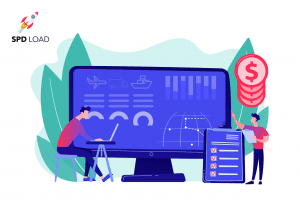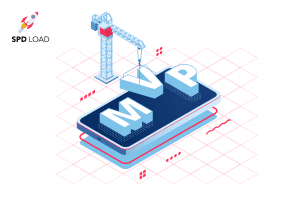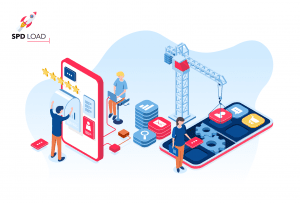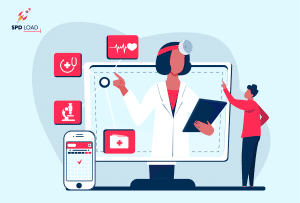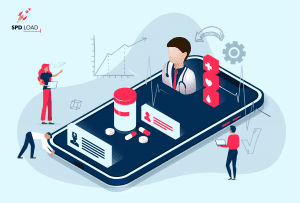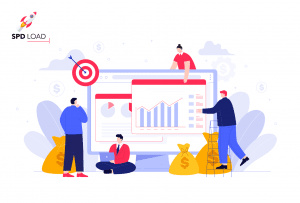What is a SaaS Product? – Ultimate Guide & Examples
- Updated: Nov 14, 2024
- 8 min
Software-as-a-service (SaaS) is the most popular business model for digital products these days.
As Bessemer recently noted, more than 175 private SaaS companies are valued at $1 billion or more.
This proves the growth in cloud-based products is more than just hype – it’s a rapidly expanding market.
Now, the SaaS market is valued at around $500 billion. It is projected to hit $1 trillion in the next few years.
So, if you want to join the club of successful SaaS founders, let’s define what exactly software as a service is and explain why launching a minimum viable product (MVP) in this field could be a smart move.
Learn more about how we approach SaaS development
What is a SaaS Product?
SaaS product is an internet software that all users can access, like a text expander.
Many of your favorite internet platforms are SaaS applications – Google Apps, DropBox, Canva, or Free Logo Creator.
Discover some of the best SaaS startup ideas that are driving innovation in the tech industry.
Entrepreneurs began spreading the idea of the SaaS model in the 1990s.
To date, it is one of the most relevant business distribution models.
If you’re deciding between software models, this comparison of the ASP model vs SaaS model can help you choose.
At least 51% of companies already operate every process in the cloud. By 2020, this number is expected to increase to 73%.
You do not need to install anything on your device to use a SaaS product.
Just having a hosting provider is enough. A server provider hosts the application. The maintenance and updates are performed on the host side and are invisible to the user.
The best thing about SaaS software is that you don’t need any special equipment or specialists to use it. Go to the site, use the product, and grow profit. What could be easier than that?
As a result, Software as a Service (SaaS) has quickly become a popular way to provide value to users. And the market reacted. Large corporations like to acquire SaaS companies and their software tools.
For example, in 2018, Microsoft acquired GitHub for $7.5 billion, Adobe took over Marketo for $4.75 billion and Magento for $1.68 billion.
In short, the SaaS product market has great potential.
As a result, anyone can join the “cloud” wars and create their own niche in this trillion-dollar market.
It’s also important to emphasize the significance of implementing proper SaaS management practices.
In this way, businesses can optimize the usage and performance of their cloud-based Software.
To become a successful player, you need to understand the basic concepts and dynamics of software services.
Check out our insights on custom software development cost that cover what drives prices and how to manage expenses.
Key Features of SaaS Products
Entrepreneurs always monitor SaaS’s features and characteristics. This makes sense since it’s an excellent opportunity to enter the big league.
The numerous advantages of SaaS relative to the traditional software business model have certainly been a factor. But is everything truly so smooth? Let’s find out the pros and cons of SaaS products.
Benefits of SaaS
- Accessibility
The cloud software model is based on client-centricity. Your service’s availability is only limited to an Internet connection. Your customers can entertain or work by being as mobile as possible.
- Endless integrations
The number of cloud apps is constantly growing. Thus, in 2025, software integrations have become a must-have requirement. It is an advantage of SaaS for organizations because:
- On average, organizations with over 250 employees use 100 SaaS products.
- Companies that have up to 50 employees use around 50 SaaS products.
- Easy scaling
Metrics and complex calculations are essential for growth. However, the smooth growth of features is only possible with cloud-based Software. It is crucial for any MVP product. Learn how to transform your MVP into a fully-fledged product with our tips on from MVP to full-scale product.
- Data safety
Cloud security standards are very high. By 2025, 99% of failures in cloud security will be due to mistakes made by customers, not technical issues, says Gartner.
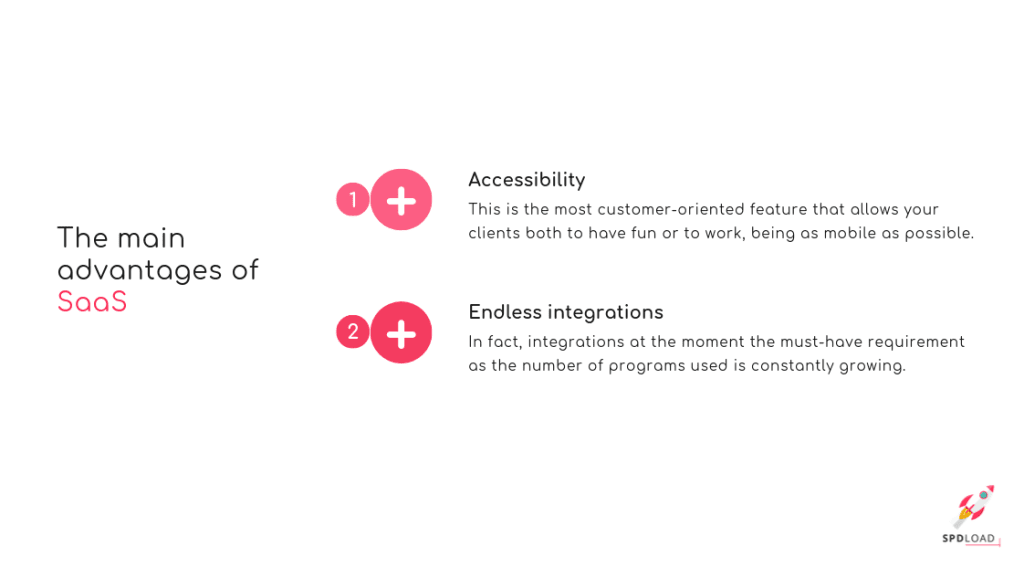
Drawbacks of SaaS
Security challenges
Paradoxically, security is both a strength and a weakness of SaaS apps.
Why? Technical solutions like ISO / IEC 27017 standards don’t guarantee avoiding user data leakage.
Anything can be the cause – from weak passwords to phishing attacks.
Government regulations
Many SaaS solutions deal with data that is subject to state regulations.
Thus, meeting state requirements, like compliance with GDPR or HIPAA, might be a technical challenge.
For more information about compliance, check out our article where we highlight the best HIPAA-compliant chat apps.
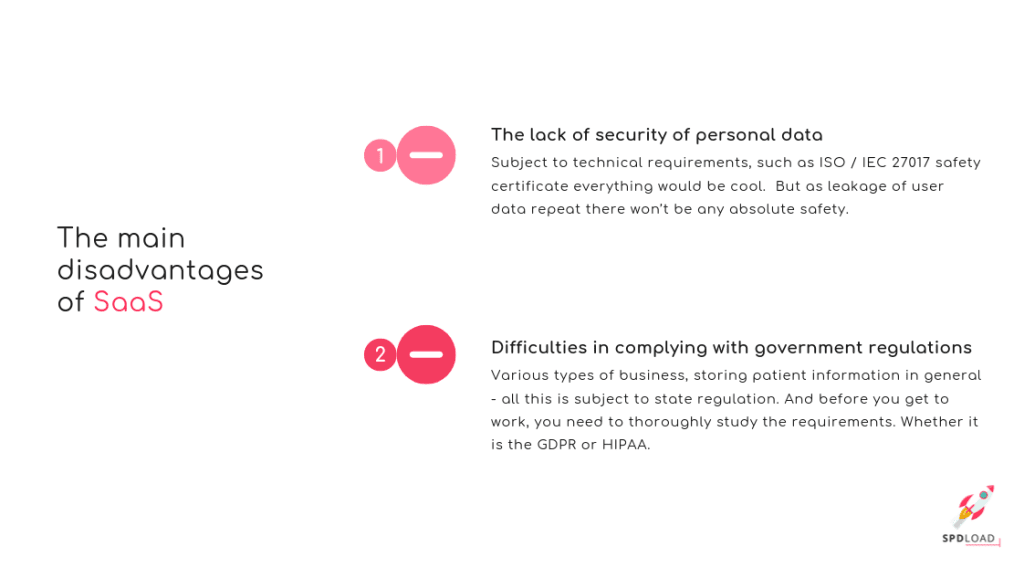
8 Main Types of SaaS
The SaaS model is singled out as a separate market direction for a reason. The diversity of possibilities in the cloud solutions market is astonishing.
Based on this, many SaaS marketing agencies are also changing strategies to align with their customers’ needs.
Let’s explore some of the available options.
| Type | Description | Examples |
| The CRM or customer relationship management software | In 2019, 91% of small businesses used Customer Relationship Management (CRM) to automate their sales and marketing processes. The core features include a lead pipeline and an analytic dashboard. | Salesforce and HubSpot are the trendsetters in this area. Explore how CRM in recruiting can transform your hiring process and improve candidate relationships. |
| The ERP or enterprise resource planning software | It’s a system that manages every business process in real time. The data shows that customer satisfaction with ERP software increased by 68% in 2019. By 2026, the market is expected to grow to $79 billion, making your SaaS vendor popular from day one. Learn more about ERP software development. | Oracle and Acumatica are famous players in this market. |
| The Project management software | This type of SaaS application helps PMs to collaborate with their teams. This niche is expected to grow to $4.33 billion by 2023, making it an excellent spot to start your own project. | The strongest competitors in this field are Jira, ProWorkflow, nTask, ProofHub, and their alternatives. Explore the best project management software to find solutions tailored to your business needs. |
| The financial management software | The financial management software niche contains SaaS products covering all payment procedures. Making a payment and reporting on after-payments are single-click processes. This market is predicted to reach $20 billion by 2026. | Great news for such SaaS providers as Xero, Tipalti or Refrens |
| The collaboration software | This type of cloud software includes features for communication and sharing information, like Flipsnack. The market is expected to be worth $16 billion by 2025, which is large enough to carve your own piece of the pie. | Miro and I done this are good examples of collab software. |
| The eCommerce software | This kind of Software has everything you need to do business on the Internet. The core features include goods management and payment integrations. The e-commerce market is forecasted to reach $21.4 billion by 2026. It creates synergy with Internet-based shopping since by 2040, 95% of customers will make purchases online. | Analyze such trendsetters as Shopify, BigCommerce, or SureCart. |
| The vertical SaaS | It’s a specific SaaS product for a particular field. It can be a comic store, martial arts dojo, grooming salon, or any other business. Vertical SaaS is a generic name for niche products made to optimize specific business processes. | |
| Mobile Device management software | It’s a SaaS product called Mobile Device Management, which provides devices with corporate resources and pushes enterprise policies on the device fleets. | Scalefusion Android MDM is an example. |
Explore our SaaS services today
Popular SaaS Companies
G2 listed the best software companies in 2025. The ranking results are based on user reviews. Let’s take a look at the top 5 SaaS companies.
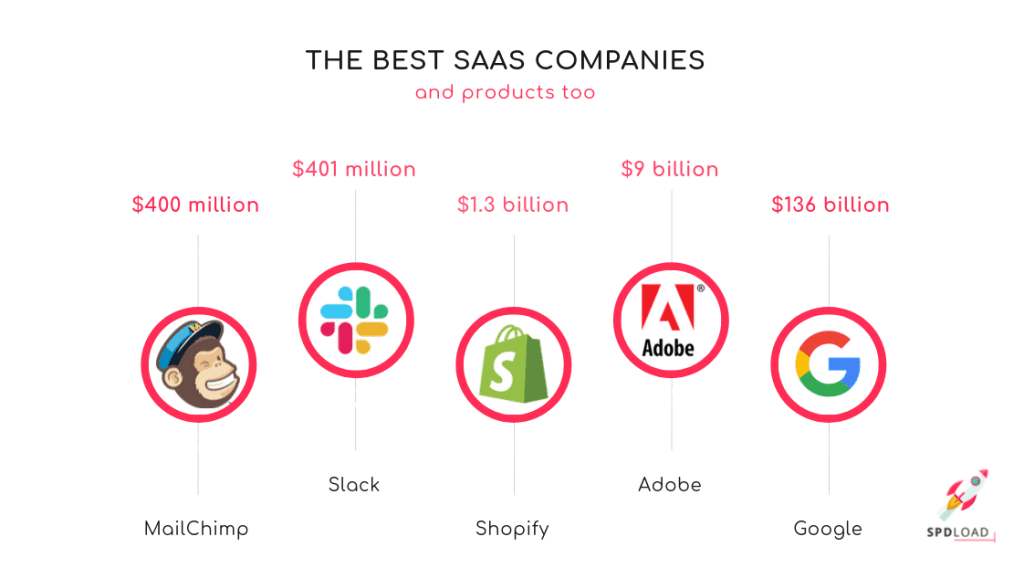
No need to introduce this SaaS provider.
Google has developed 137 Internet-oriented products, which we enjoy using every day.
These include search engines, maps, advertising software, analytics, and documents.
The company started as a little startup in 1998. Today, 21 years later, it has $136 billion in revenue.
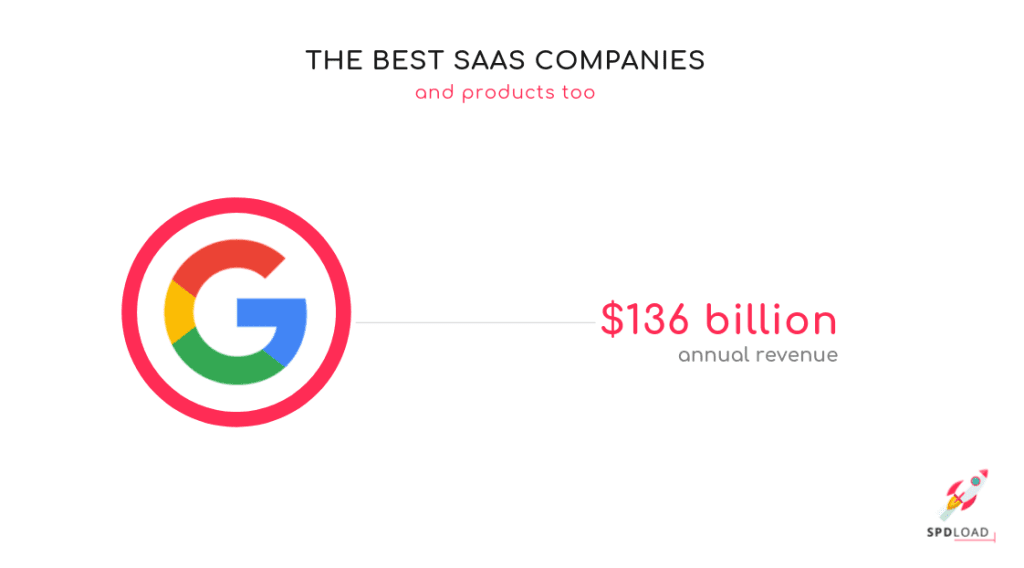
Adobe
Most of us know something about Photoshop, Illustrator, or Flash Player.
One thing they have in common is that they are all Adobe products.
In fact, Adobe owns more than 50 software products for photo and video editing, printed media, and marketing.
What can I say? With their help, users open 200 million PDFs annually, which in turn helped Adobe earn $9 billion in 2018.
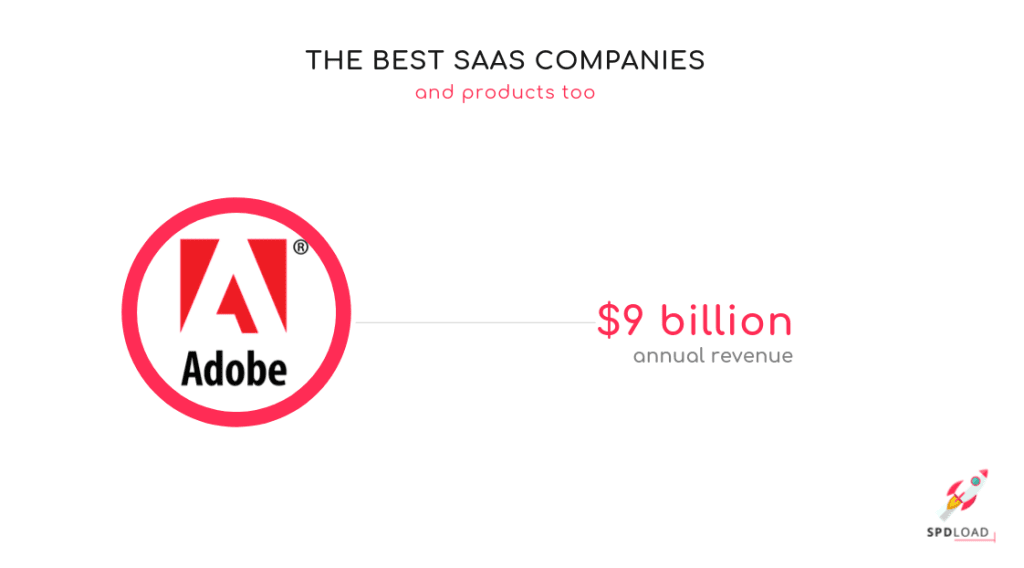
Slack
After failing as a massive multiplayer game, the company pivoted and became the popular platform Slack, which is widely used today.
Slack was founded in 2013 and currently develops three products.
The main product is Slack Messenger, which is mostly used for business purposes. Slack is easy to integrate with many third-party services.
That is why Slack has 9 million active users weekly, generating $401 million in revenue.
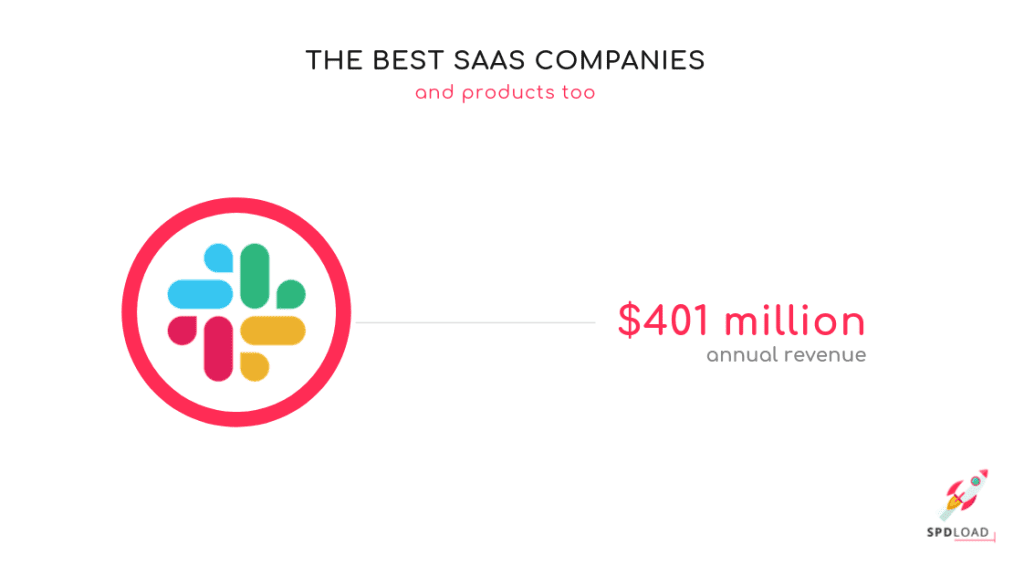
MailChimp
When Darwin’s theory met email marketing, the world saw MailChimp (and, after that, many MailChimp alternatives). The company now owns three products.
The main one is MailChimp, an email marketing tool for developing and analyzing email-oriented marketing companies. Over 15 billion emails are sent by MailChimp every month.
As a result, the company earned $400 million with just 550 employees.
Find out which email marketing software platforms are worth your time and investment.
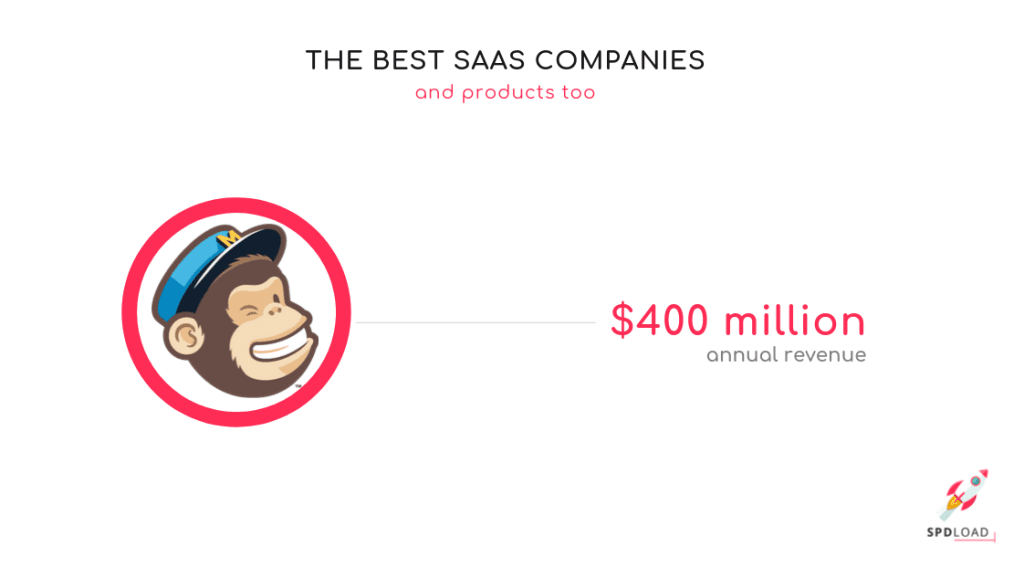
Supercharge Your Team with Top IT Talent.
Shopify
Do you want to start your business?
Use a credible tool. Shopify is an eCommerce platform with four products.
Its main SaaS product is Shopify, an e-commerce platform for online stores and retail Point Of Sale (POS).
Over 800,000 entrepreneurs use this platform for business purposes. Last year, it helped Shopify generate $1.3 billion in revenue.
They offer a 3-day free trial, after which you can continue using Shopify for $1 a month for three months.
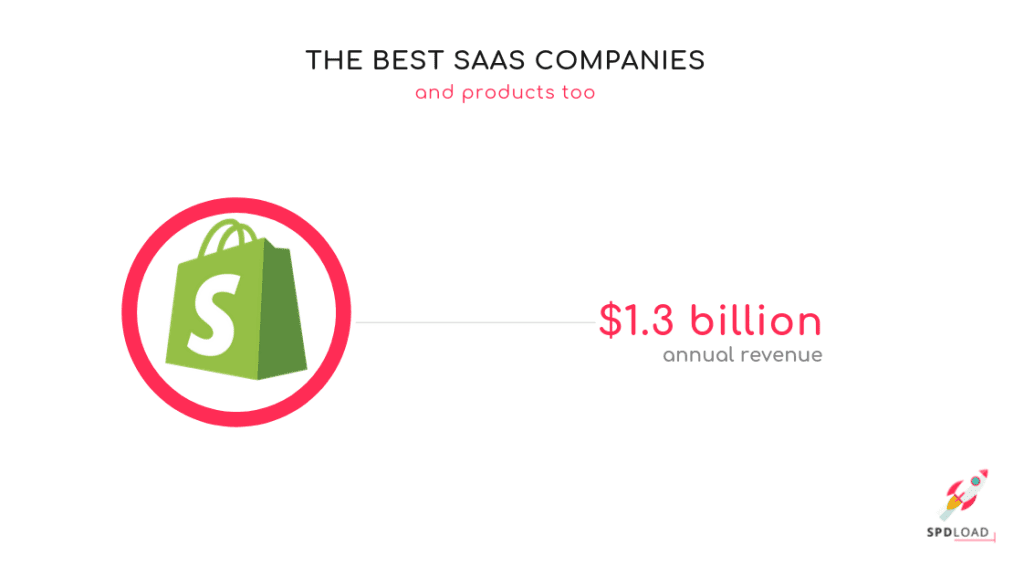
SaaS Learning Resources
To build a successful SaaS product, permanent and validated learning is essential.
Here, I highlighted five best resources to let you make your own SaaS Knowledge Base:
- SaaStr should become your daily read. Being called “the world’s largest community for business software,” it is a great resource to level up everything you know about SaaS or find something you always wanted to learn. Also, I recommend you check the Twitter account of the founder of SaaStr, Jason Lemkin.
- ForEntrepreneurs by David Skok is another example of in-depth analysis and top quality content. If you want to improve your marketing and sales skills, you certainly need to check this out.
- PredictableRevenue’s blog focuses on the best sales strategies for SaaS. Want to know how the author reinvented the cold call strategy? Read this blog to learn how to scale your SaaS business.
- Tomasz Tunguz’s blog is the most data-driven content in the SaaS industry. It nails the SaaS concept using in-depth data analysis and is a useful and enjoyable read.
- And finally, the SaaStock podcast. The SaaS Revolution Show has 60+ episodes. The topics cover every SaaS issue and are very informative to listen to. Enjoy.
What’s Next?
SaaS products are cloud-based Software that users access via subscription and online only.
This on-demand model type is enormously popular as a digital product business model. However, the statistics show that 37% of software projects fail due to unclear goals.
That’s why validating your idea upfront is so important.
If you want to build your minimum viable SaaS product, SpdLoad specializes in streamlined development to turn ideas into real products customers love.
Contact us to schedule a free consultation to discuss your SaaS product, its goals and requirements.
Planning your own business? Here are essential business startup tips to guide you.




